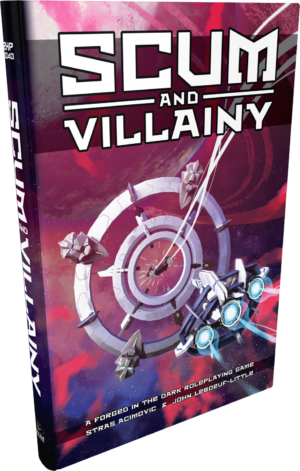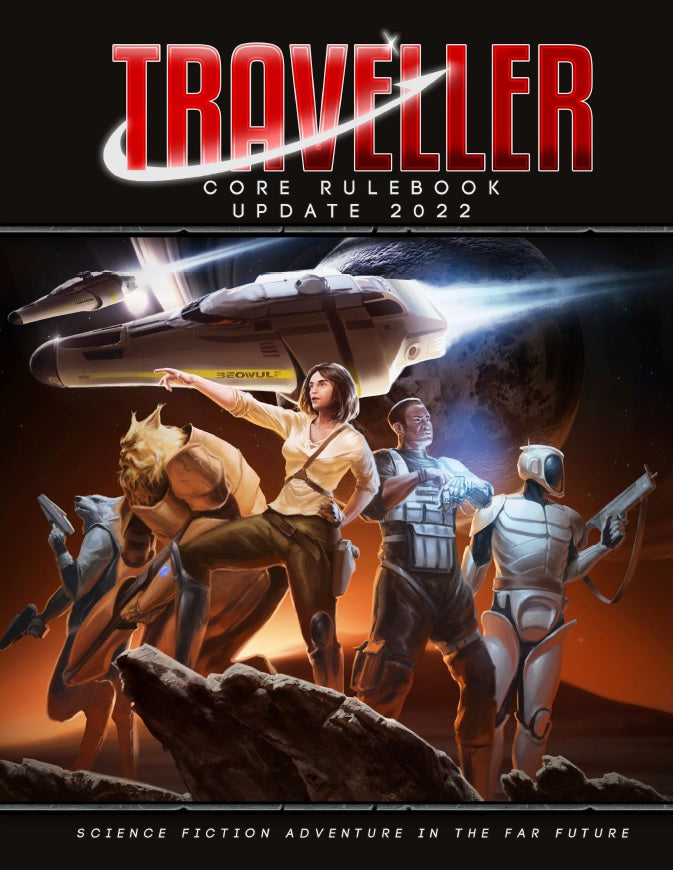Orbital Blues Space-Western; Science Fiction; Bleak; Narrative-Driven; Resource Management; Exploration-Driven; Character Customization
Orbital Blues is a tabletop roleplaying game that blends the space western and science fiction genres with a focus on narrative, resource management, and exploration. It distinguishes itself with a bleak, post-capitalist setting and rules-light mechanics that prioritize player-driven storytelling and character customization, appealing to players who enjoy games like Cowboy Bebop and Firefly.
Theme and Setting
Orbital Blues casts players as interstellar outlaws navigating a gritty, retro-futuristic galaxy reminiscent of the late 20th century, but with a twist: capitalism has largely failed, leaving a world of haves and have-nots. The game evokes a lo-fi space western atmosphere, combining elements of science fiction with the tropes of classic westerns. This creates a setting where technology is often unreliable and mass-produced, prioritizing function over form. Themes of class warfare, survival on the fringes of society, and the struggle against powerful corporations are central to the player experience. The game world emphasizes a sense of desperation and the importance of camaraderie among the crew.
Core Mechanics and Rules
The game utilizes a rules-light system built upon three core stats: Muscle, Grit, and Savvy. Character creation is streamlined, assigning numerical values to each stat to define the character's capabilities. Instead of traditional classes, players choose a 'Title' that represents their intended personality, such as 'The Lover,' 'The Fixer,' or 'The Survivor.' This choice does not have a mechanical impact, but it helps to define the character's roleplaying potential. Characters also have Heart, Blues, Gambits, and Troubles, which further customize abilities. The core mechanic revolves around rolling a d6, and the system places narrative and relationships at the forefront. Despite its rules-light nature, Orbital Blues provides a catalog of weapons, armor, and vehicles. This provides players with options without bogging the game down in overly complex rules.
What Makes it Unique
Orbital Blues distinguishes itself through its thematic focus and unique blend of genres. The game emphasizes the 'rock and roll future of yesteryear that never was,' offering a distinct retro aesthetic. Unlike many sci-fi RPGs, it highlights the failure of capitalism and the resulting societal struggles. The gameâs mechanics encourage players to focus on character relationships and narrative development, rather than being bogged down by complex rules. The concept of naming troubles that scoundrels experience adds a layer of depth, moving beyond generic stress mechanics found in similar games. The game's presentation, including its art style and layout, reinforces its themes and contributes to its unique identity.
Target Audience and Player Experience
Orbital Blues is targeted towards players who enjoy narrative-driven games with a focus on character development and collaborative storytelling. Its rules-light mechanics make it accessible to newcomers, while its rich setting and thematic depth provide ample opportunities for experienced roleplayers. The game is likely to appeal to fans of space westerns like Cowboy Bebop and Firefly, as well as those who appreciate a bleak, post-capitalist setting. Players can expect to engage in daring heists, desperate gun battles, and tense stand-offs with corporate goons, all while managing resources and exploring a hostile galaxy. The game is designed to create a fast-paced and dramatic experience, emphasizing the importance of crew dynamics and shared struggles.



